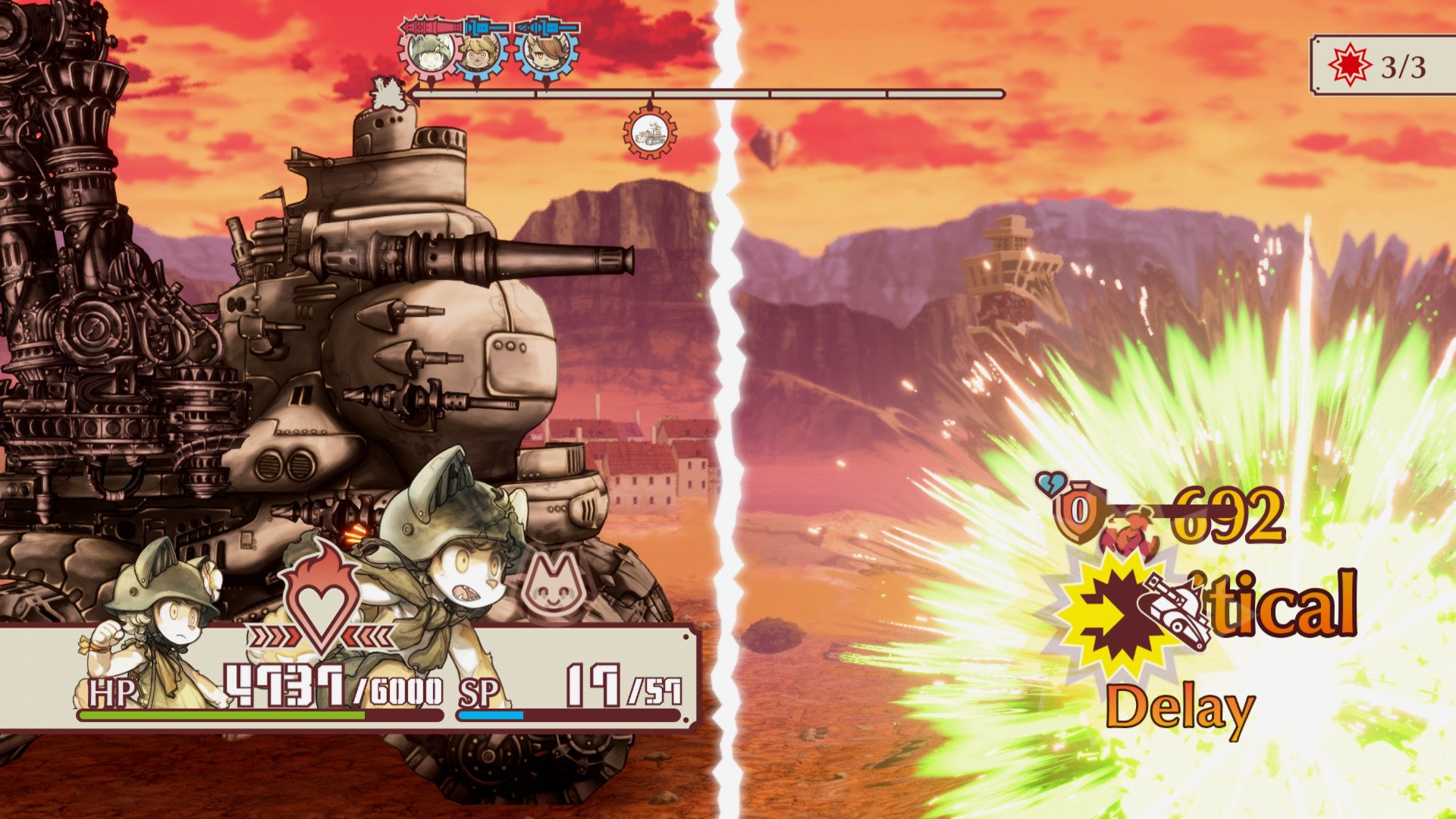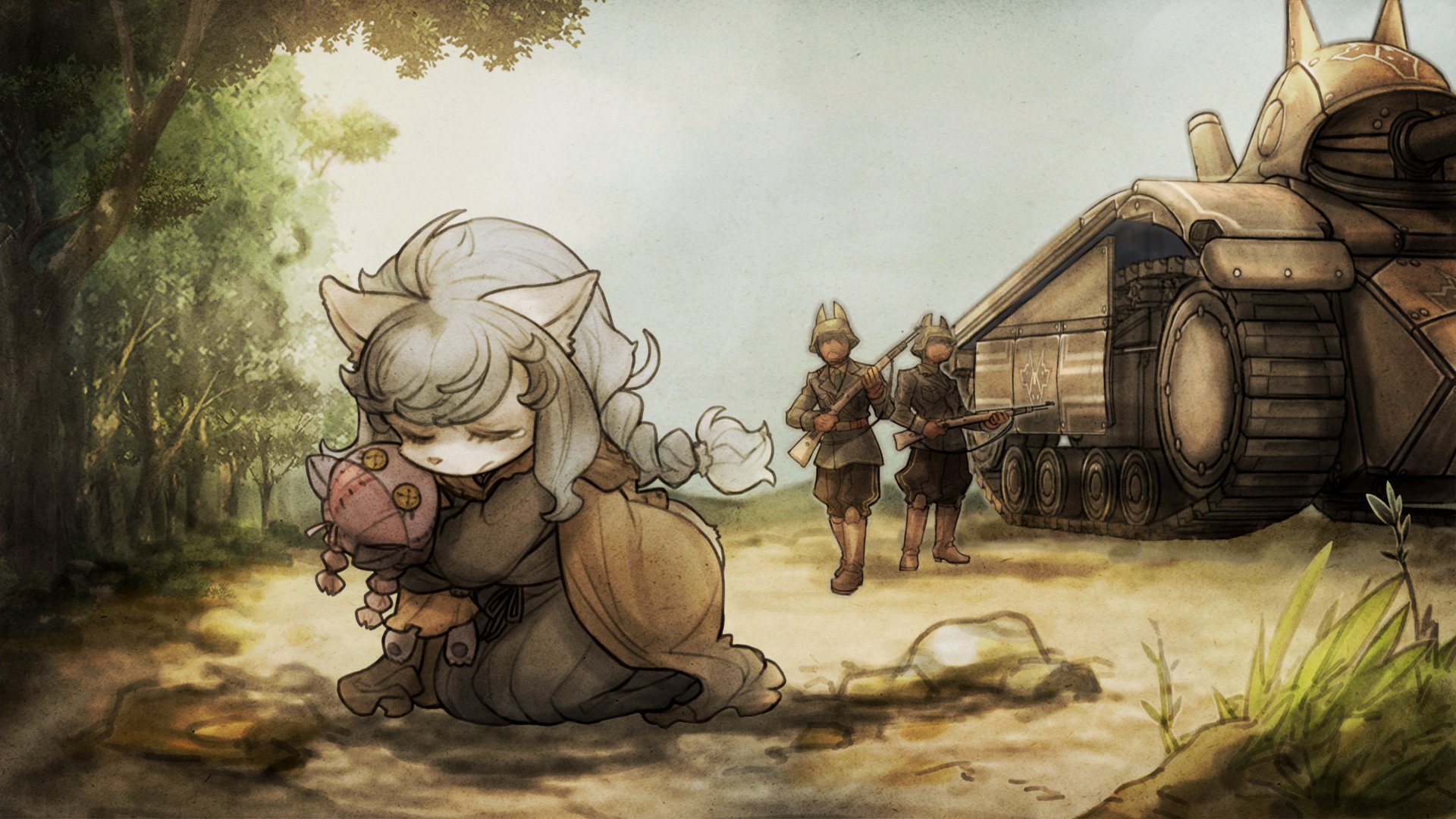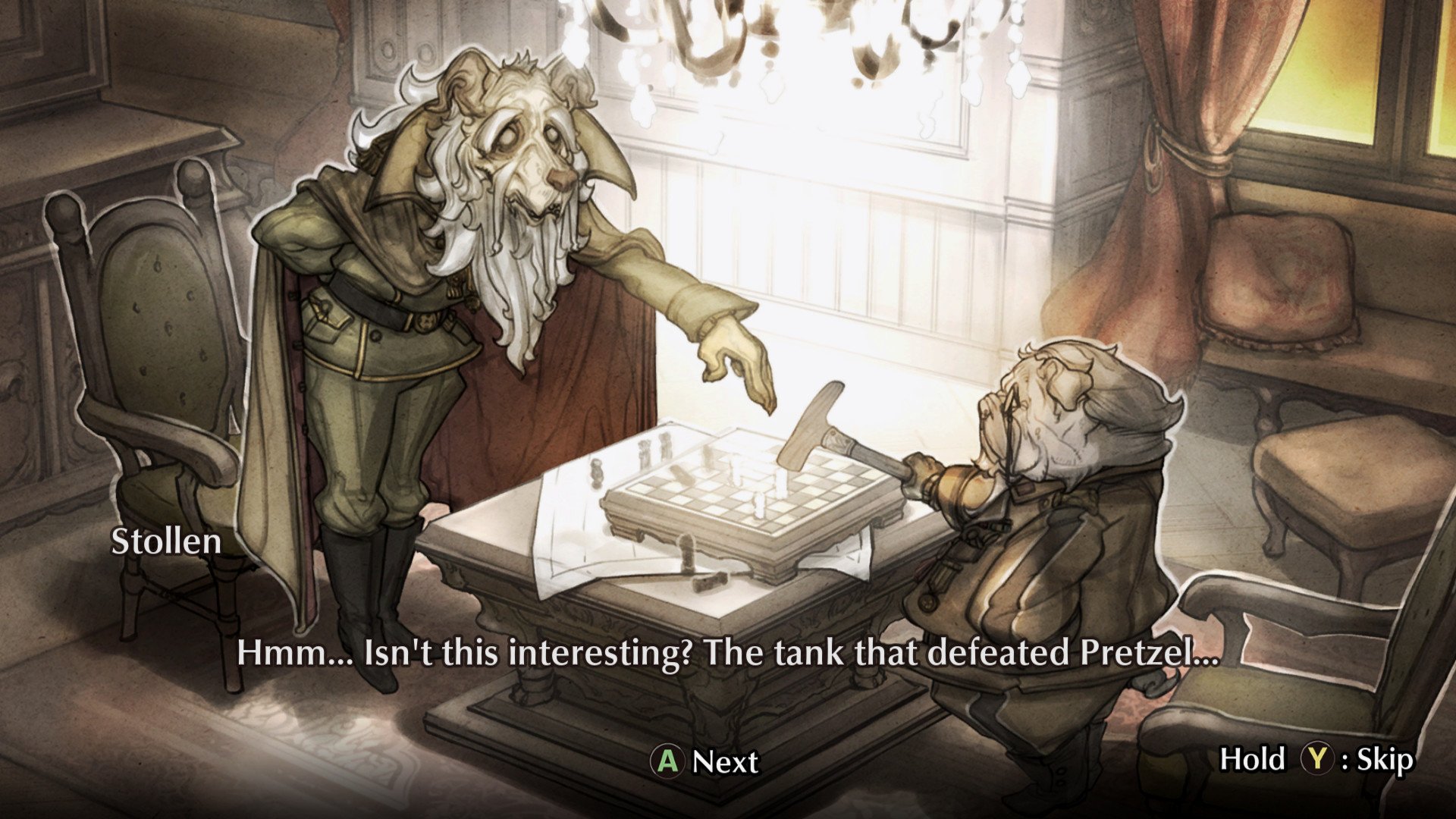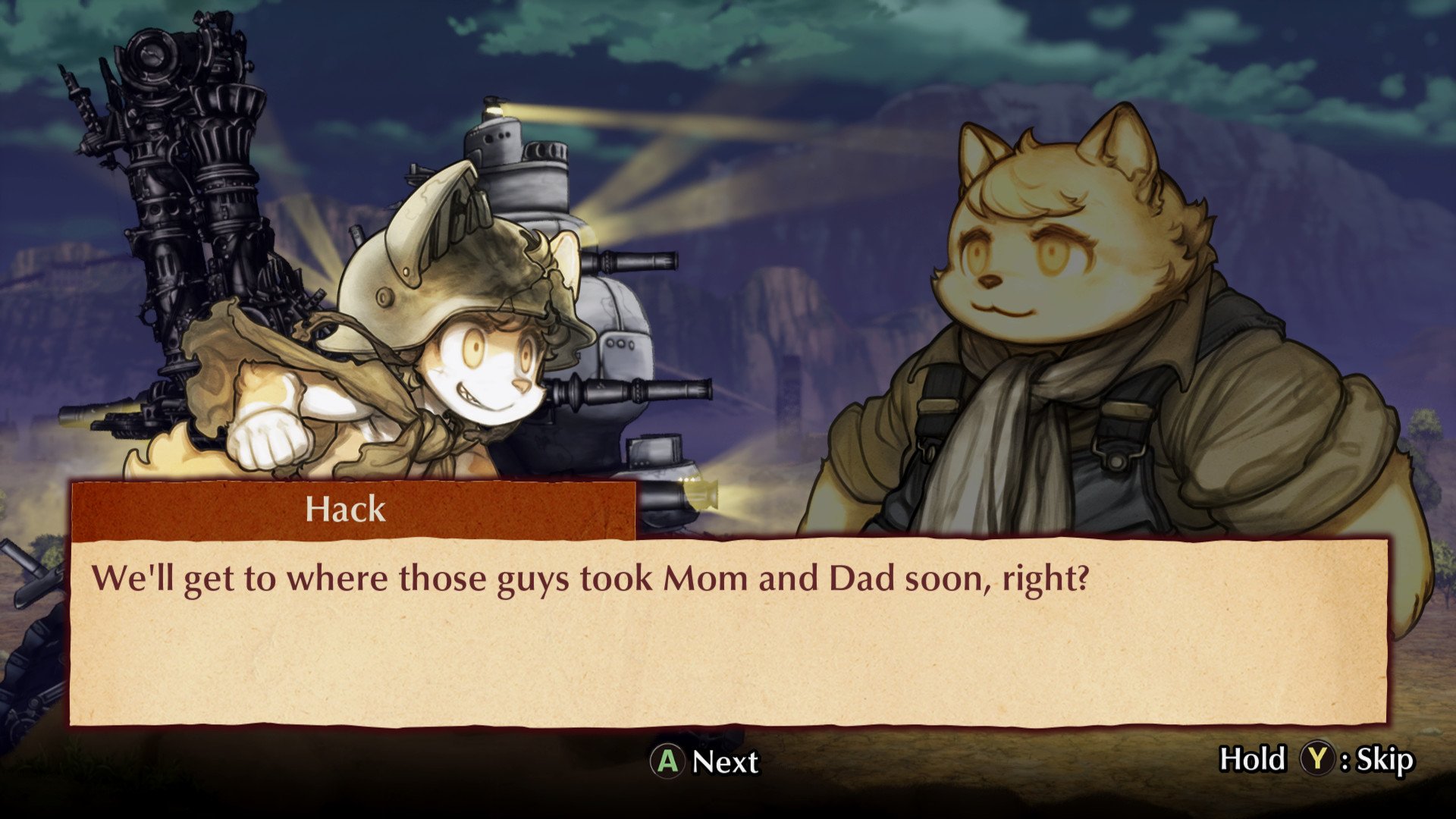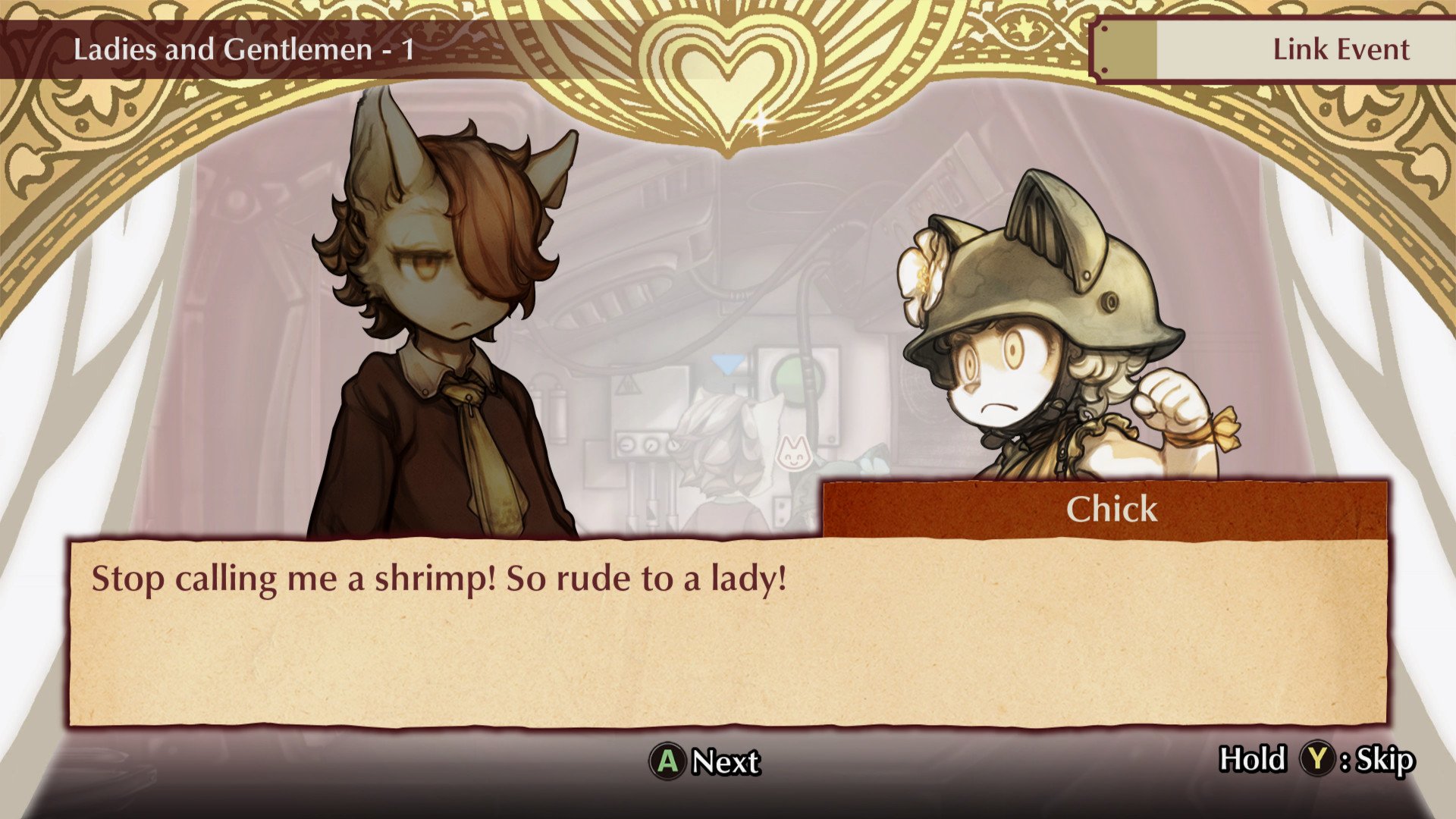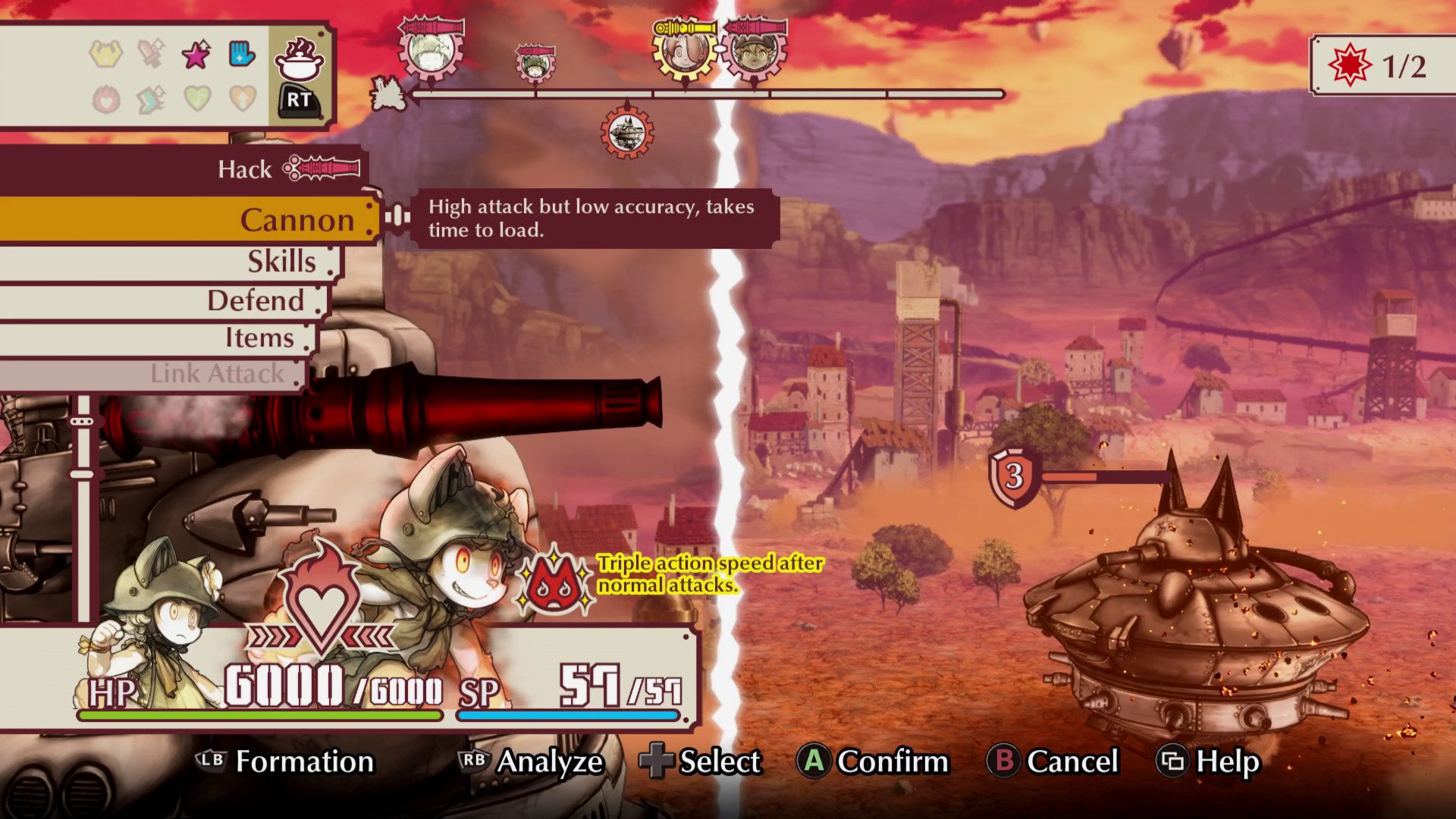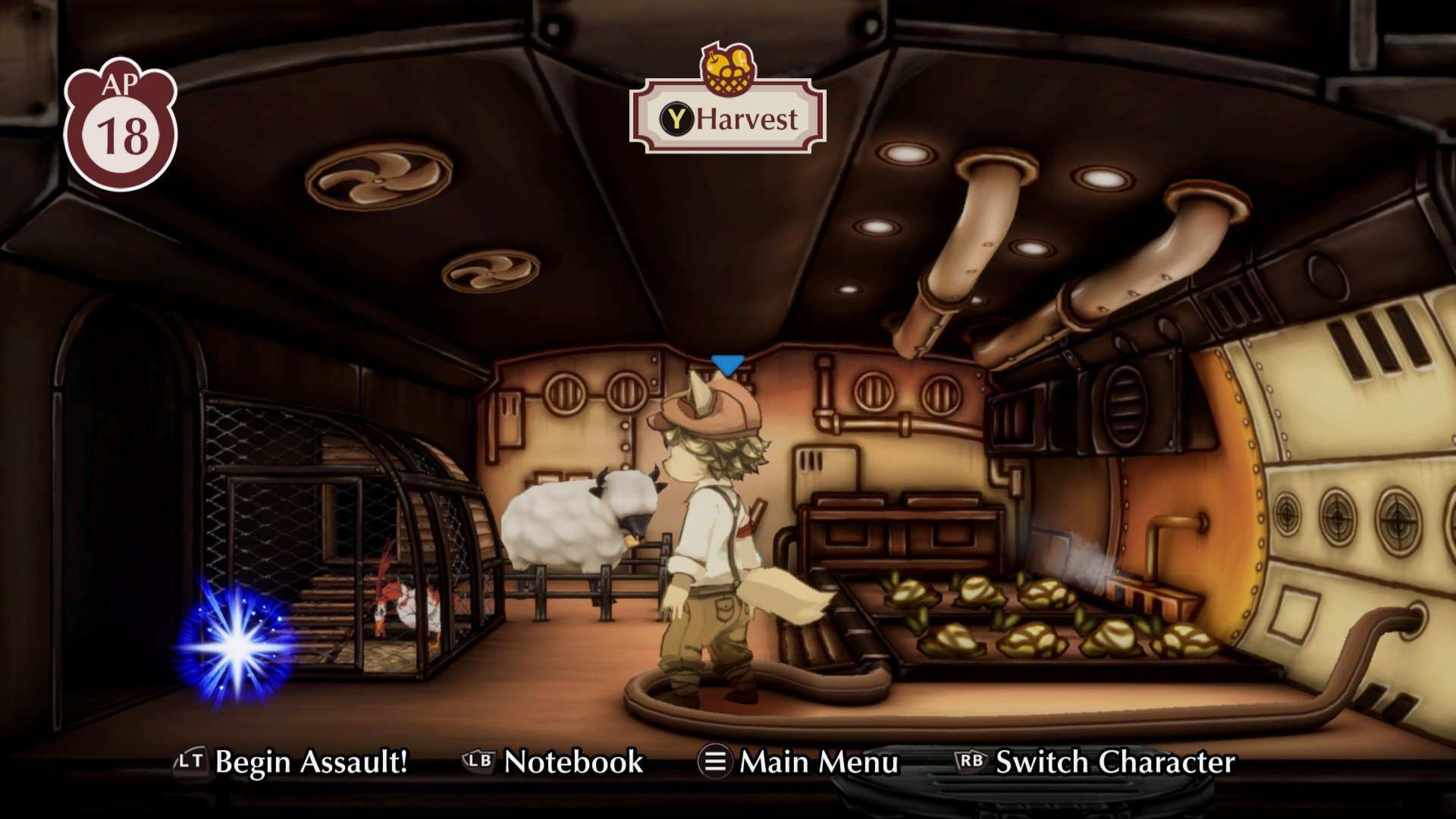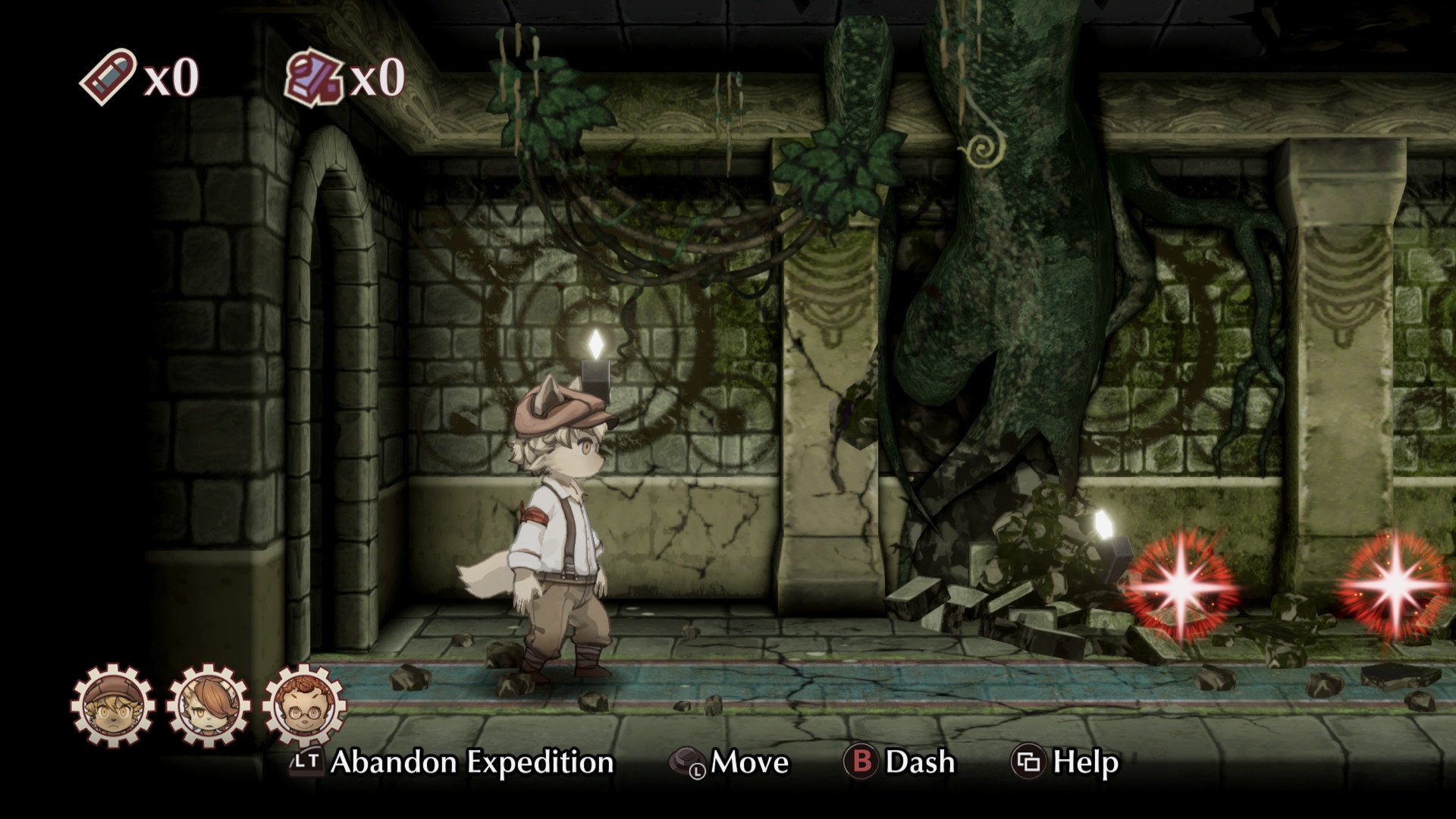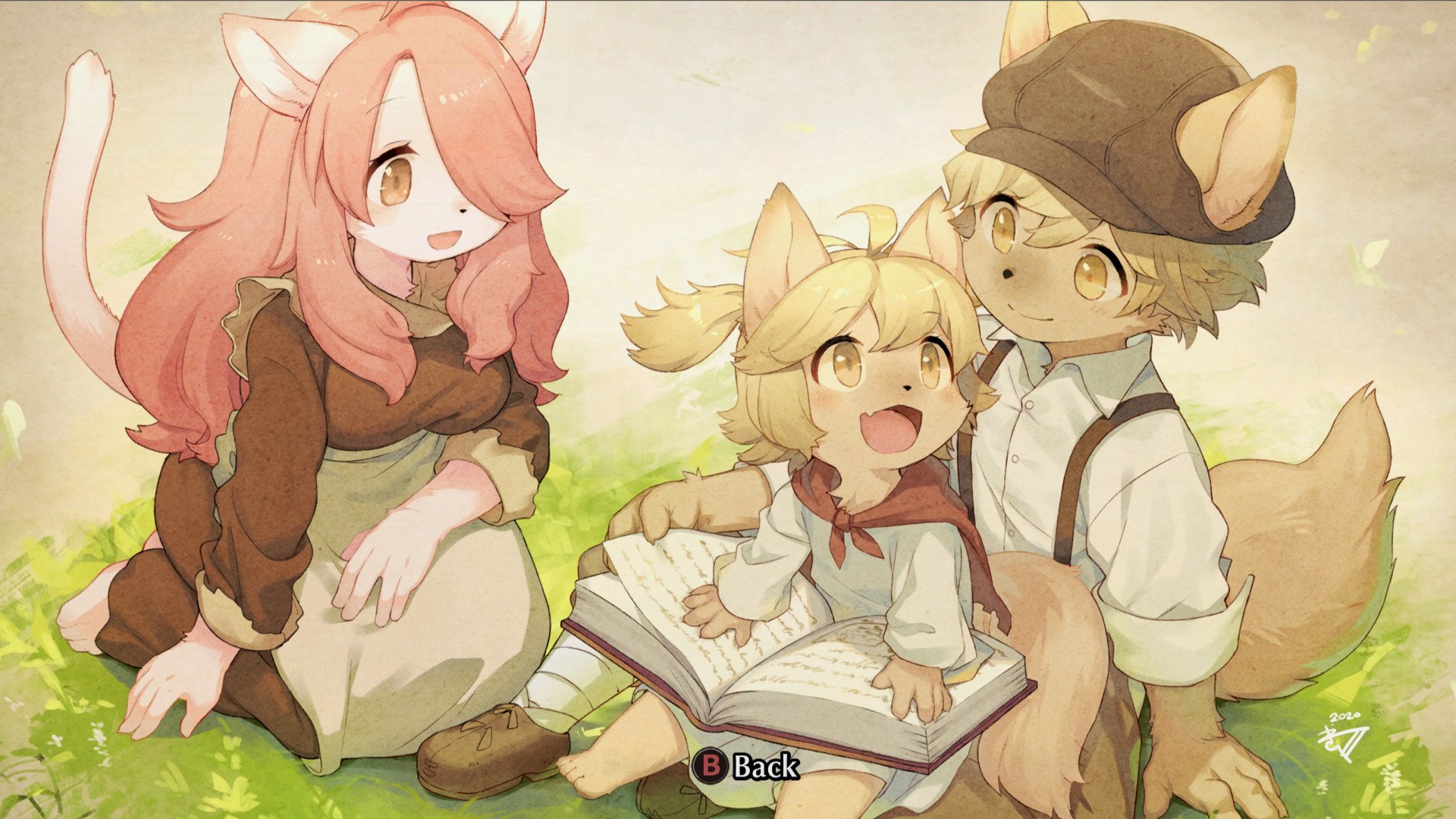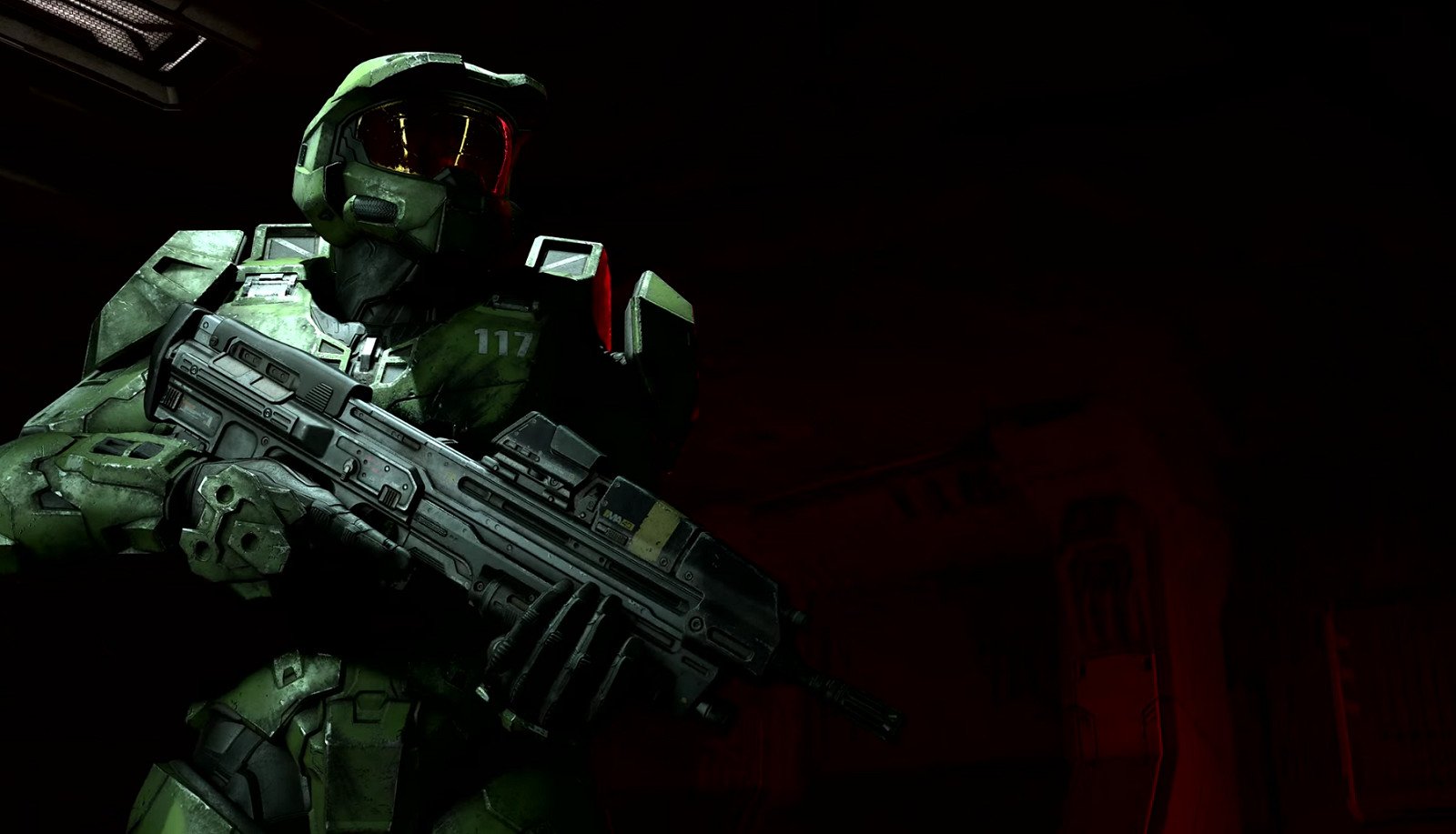I've recently found some renewed love for JRPGs, and I came upon this interesting title from Cyberconnect2, a rare supporter of Xbox from Japan. This is a game that I'd expect to see on PC and Nintendo Switch without hesitation, but to find it on Xbox was a delight, and I had to give it a try.
FUGA: Melodies of Steel likely got overshadowed by The Ascent, which hit Xbox Game Pass around the same time FUGA launched. I enjoyed The Ascent for what it was, but quite honestly, I'm enjoying FUGA: Melodies of Steel far more. Its thoughtful blend of heartfelt storytelling, simple, but deceptively deep combat mechanics and compelling art is infectious and rewarding, and I'm here today to compel JRPG fans everywhere to give it a try, regardless of your platform preference.
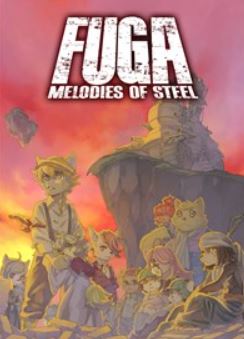
Bottom line: FUGA: Melodies of Steel cuts through the bleakness of its setting with heartwarming characters and childlike optimism, although its punishing turn-based tactical play may force you into gut-wrenching perma-death situations. FUGA is an underrated gem, and deserves the attention of JRPG fans everywhere.
Pros
- Whimsical story full of war, magic, and tanks
- Layers of progression systems that blend nicely
- Deceptively deep turn-based tactics
Cons
- Enemy design variety is a bit lacking
- UI could be improved with ingredient tracking and other usability features
The sorrow of war through a child's eyes
FUGA: Melodies of Steel is a side-scrolling tactical JRPG, which takes place in a World War II-inspired setting with magical undertones. FUGA replays the sorrow of war and loss through the lens of a child's eyes, as surviving villagers take it upon themselves to pilot a large tank machine into the heart of the war to find their parents and loved ones.
Set on the floating isle of Gasco, quite clearly inspired by the French countryside, the peaceful Caninu and Felineko find themselves besieged by the Berman canine empire. Assaulted with superior technology, including everything from tanks to steampunk drones, the adults are rounded up one by one and carted off for unknown reasons. A small group of friends from the village of Petit Mona manages to escape the carnage and seek refuge in a nearby cave. Therein, they happen upon a gigantic tank called the Taranis, which forms the basis of combat, and serves as a major plot device.
Source: Cyberconnect2 / Windows Central
The Taranis is an ancient weapon of unknown origin, and has a spirituality about it that is revealed gradually as the game progresses. Without spoiling too much, FUGA: Melodies of Steel delicately weaves cute and endearing moments of interaction between the kids, while sprinkling in layers of darkness that you might expect given the war taking place.
Like many JRPGs, FUGA gives you the opportunity to develop friendships between the characters, triggering short cutscene events that further endear you towards the game's characters. The kids' unrelenting optimism and love of their families is delightfully charming, and cuts through the bleakness of the game's setting, driving you forward. You'll want these kids to win. Protecting them on their perilous journey is a tricky, precarious affair, though, and FUGA pulls no punches when it comes to forcing you to make painful, gut-wrenching decisions.
All the latest news, reviews, and guides for Windows and Xbox diehards.
Tactical turn-based combat with layers of progression
FUGA: Melodies of Steel is a tactical turn-based RPG at its heart, but it features a good spread of side objectives and mini-games that prevent it from feeling too repetitive. The gameplay loop presents itself in satisfyingly intense short bursts (which would make it ideal for Xbox Cloud Gaming, ahem), letting you complete strings of objectives in brief three-to-five-minute battles, that culminate in more difficult set-piece boss battles.
If you're a fan of JRPGs of any stripe, you absolutely must play FUGA: Melodies of Steel.
FUGA draws upon inspiration from the likes of Advance Wars, where your tank lives on the left side of the screen, and enemy tanks and drones flood the right side. You'll battle waves of various mechanized monsters as you advance through each area, choosing riskier paths with greater rewards, or easier paths for those who simply want to get through the story. Regardless of how much danger you put yourself in, you'll eventually hit a wall where a more difficult enemy stands, forcing you to potentially reconsider your tactics, or even backtrack to an earlier checkpoint to improve your loadout and equipment.
Similar to Advance Wars and other tactical games of this nature, combat plays out on a timeline, viewable above the battlefield. Each child commands a different gun on the tank, which forces you to make layered tactical considerations. One child might have a healing ability, but you might have to sacrifice a gun slot that provides advantages over certain tank types. Flying enemies for example are specifically weak against machine guns, while tanks shrug them off. Conversely, flying enemies avoid cannon fire with relative ease, while slower-moving ground vehicles are easier targets. Mixing and matching your characters to meet each challenge keeps combat feeling dynamic throughout, and as you unlock more and more tank operators, you can factor in even more dynamic strategies.
Source: Cyberconnect2 / Windows Central
In between battles, you're treated to intermission areas which often come with some story context, cutscenes, and new feature unlocks. Four hours into the game, I found myself still unlocking new features, giving you a large toolset of content to play around with. The relationships between the children play a role in battle too, giving them boosts to combat prowess with their happiness, for example. You can farm and cook inside your tank, as well as construct more powerful weapons, and build up relationships between the characters. Higher affinity scores even grant powerful team combo attacks in battles, which can turn the tide even in the most desperate situations. If situations get truly dire, though (and they will), you can even make the ultimate sacrifice.
Despite its cutesy-kawaii appearance and loveable characters, FUGA actually features perma-death. The strange Taranis tank sports a powerful weapon called the Soul Cannon, inside which a child can literally sacrifice their life to defeat any enemy, including bosses. This gives you an option to progress in situations where you've utterly hit a wall and can't move forward, but the ramifications will be felt by your squad, and maybe even yourself. Thus far, I haven't gotten into a situation where I was forced to use the Soul Cannon, but I've come very close multiple times. The very idea creates a gnawing tension, especially given the relationships the characters have — not only friends, but some are also family and siblings. I was tempted to sacrifice some just to see what happens, but despite being the jaded curmudgeon I am, I couldn't do it. And I sorely hope I never have to. MUST. PROTECT.
A hidden gem
FUGA: Melodies of Steel has proven itself to be something of a hidden gem on Xbox and PC. The JRPG has gorgeous artwork, endearing voice work, and loveable characters. The gameplay loop is bitesize, ideal for lengthy "one more battle" sessions into the dawning hours, or brief stints in between meetings (or even during meetings, you know, the ones where you pretend to listen). And damn, I sorely wish it was on Xbox Game Pass cloud gaming, but that's a whole other discussion.
If you're a fan of JRPGs of any stripe, or have love in your heart for classics like Advance Wars, you absolutely must play FUGA: Melodies of Steel. This is a game unfairly overshadowed by other big releases of the time, and more than deserves some time in the spotlight. I would even call this quite easily one of the best JRPGs on Xbox right now.

Jez Corden is the Executive Editor at Windows Central, focusing primarily on all things Xbox and gaming. Jez is known for breaking exclusive news and analysis as relates to the Microsoft ecosystem while being powered by tea. Follow on Twitter (X) and tune in to the XB2 Podcast, all about, you guessed it, Xbox!
